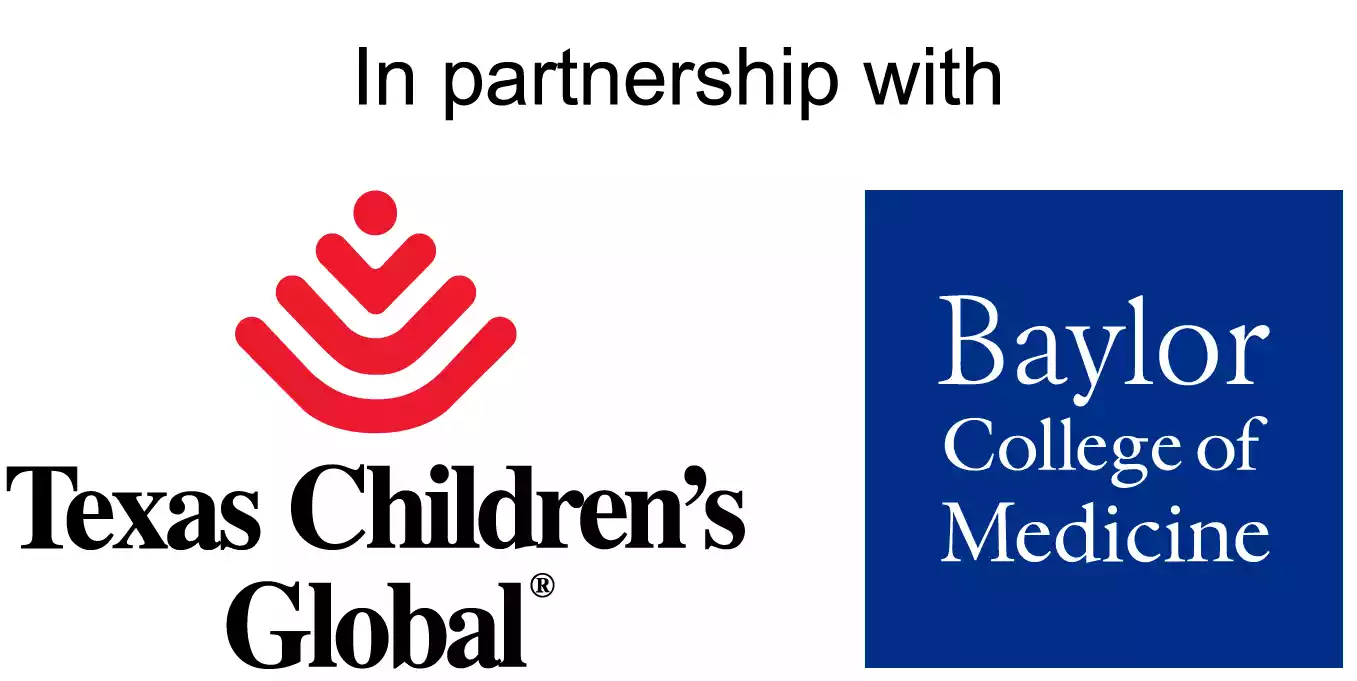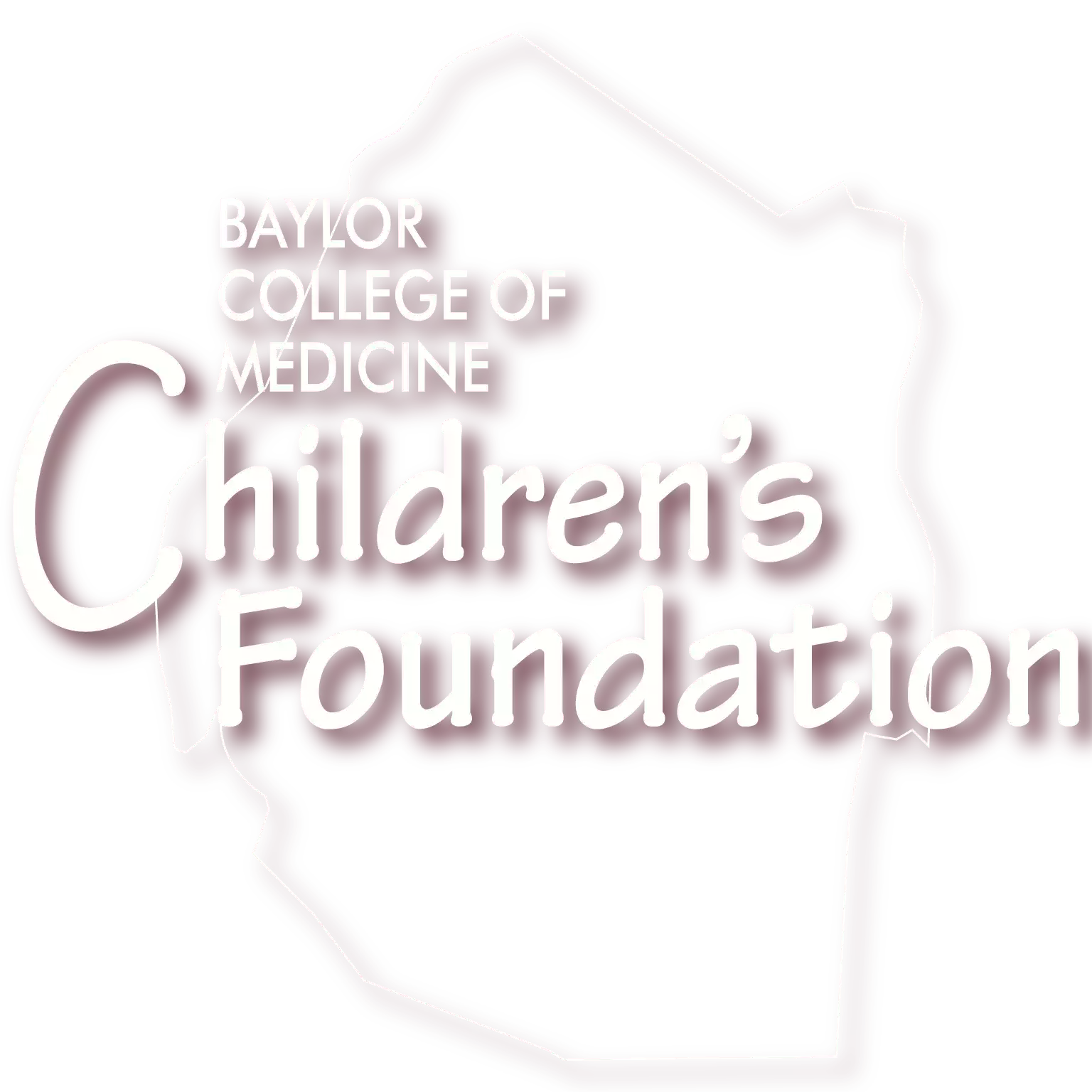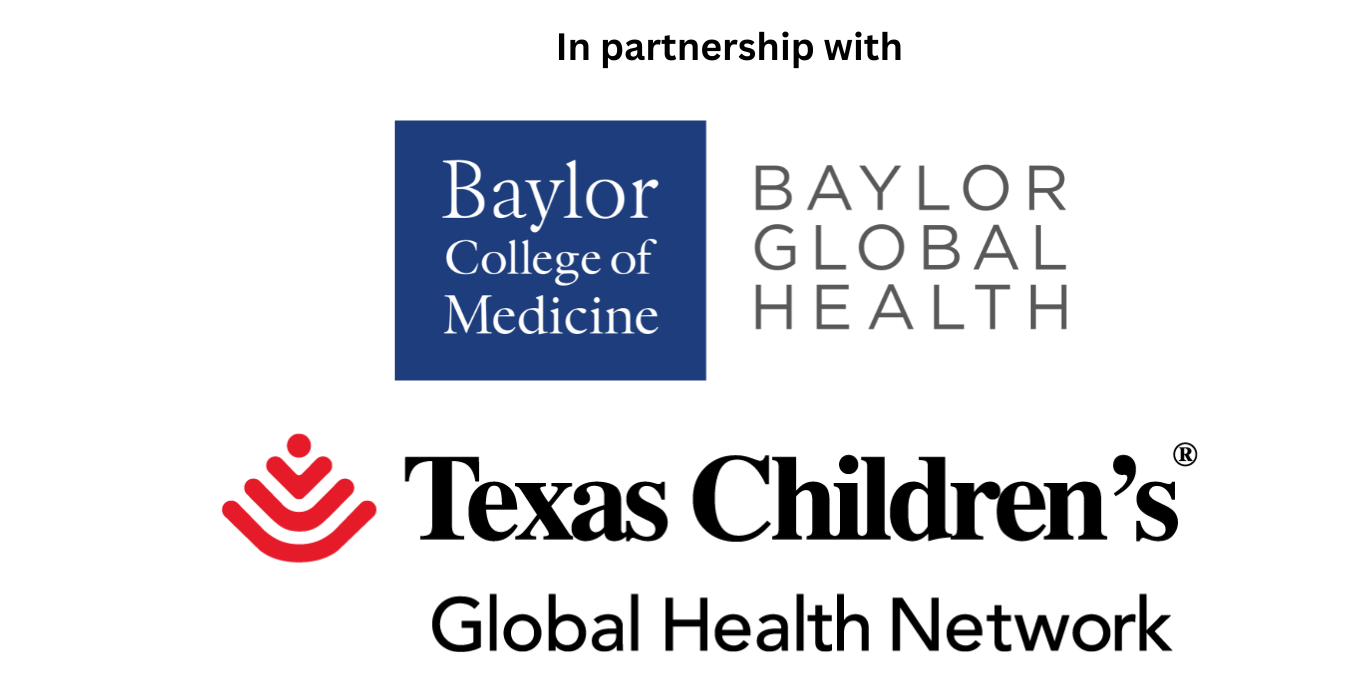Stories
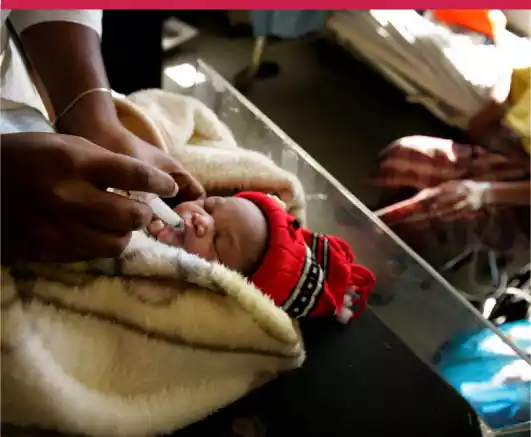
A Teen Mother’s
Triumph
I got pregnant at the age of 18 and am HIV+. I started my treatment in 2009. It was very difficult for me to adhere to the treatment since I was very young. With the help of Baylor Clinic support group, I was encouraged to take care of myself and take my medication seriously and honestly.
In 2021, I joined the support group for teen moms at Baylor clinic where I got very important lessons about living with HIV and looking after myself. This included family planning, so I decided to take contraceptive in the form of an implant. I thank Baylor Clinic for their support.
Through the lessons (sessions), I managed to decrease my viral load since I became adherent to my treatment. I thank Baylor from the bottom of my heart for changing my life for the better. In the support group sessions at the clinic, I have learnt business lessons and they have helped me to start a small business (a spaza shop). My business is doing very well, and I have quite a number of customers to serve. I started my business without a proper structure, but now I have a better one and it can accommodate a lot of items which the people in my community demand. I am very proud of Baylor’s endless support, and I love them from the bottom of my heart. I would like them to please support other teen mothers who need help like I did. Baylor is very helpful to us teen mothers. They give us hope and encourage us to do better as we grow older.
My son is now 3 years old. I am able to buy clothes and food for him with the help of my small
business since his father does not care for him. All his needs are on my shoulders. I am happy and very proud of Baylor Clinic. Thank you so much.
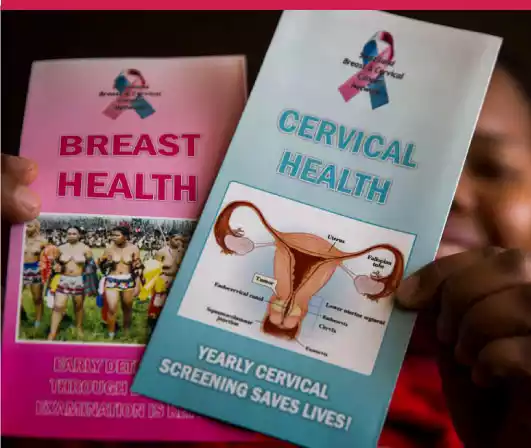
Hope and Healing from
Cervical Cancer
I am a 50-year-old mother from Siphofaneni. I am here today because of information I got from Cancer Educators who were educating us about cancer screening in my community. As they were educating us about cervical cancer screening, they told us that one day we would be visited by doctors from Baylor clinic to our community and screen us for cervical cancer. Indeed, these doctors came and screened us, and they found something in me when they were screening for cervical cancer. They took specimens from all of us who screened positive and told us that they would call us for results.
They called me on the 4th December 2021 to come to Baylor clinic in Mbabane. They told me that they found something abnormal in my cervix, and they need to take more samples to do further tests. A couple of months later, they called to inform me that I have cancer in my cervix. I was shocked by this information because I didn’t feel any sickness, but I got courage from a fact that some of my community members who were once in my situation were healed.
I was then referred and accompanied to a Referral hospital by one of the Doctors from Baylor clinics. I was booked for a specialist Doctor to start treatment and my next appointment was set for the 4th August 2022. I am so grateful to the Baylor Foundation who availed these services to us at community level because I wouldn’t have known even by now that I have cervical cancer, until it would have progressed to worse stages where it would be impossible to heal.
I’m very grateful to the staff from Baylor Foundation who made follow-up calls to me to provide counselling and reassuring me whilst I was waiting to start treatment. I wish they can continue to reach every community, because this has been an eye opener to many in our communities who believed that this is some unique disease which could be healed only by traditional healers. I am very grateful for this service; I wish it can continue to reach more EmaSwati.
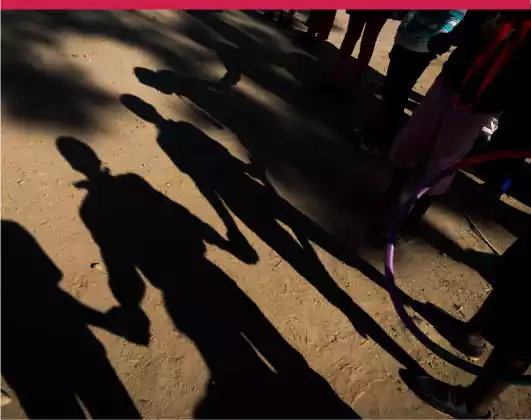
Suicide Averted through
UReport Platform
In a critical situation, a teen reached out for help on U-report, an SMS based platform for health-related questions, with a message that read “I don’t have a problem with my ARVs, but I’m thinking of ending my life.” Though the member’s number was not provided due to the system’s privacy policy, a Baylor Foundation Eswatini social worker discovered that the demographic details of the message sender were similar to a client they had, as the member had used their actual name instead of a nickname for anonymity. In accordance with our de-escalation procedures, we requested that she share her phone number with us so we could reach her. Despite the inability to reach her number, the social worker was able to contact the member, and through counselling involving meetings with the doctor and social worker, it was discovered that she had in fact been contemplating suicide. Continual counselling sessions with the client allowed her to feel understood and validated, provided her with a listening ear, and offered her a non-judgmental perspective. With the compassionate support received from Baylor Foundation Eswatini, she was able to find hope and choose to continue living.

Malnourished Twins Receive
Life-Saving Care
During a mentoring visit at Mbabane Government Hospital (MGH) in January 2018, newly admitted twins were reviewed with two pediatricians. They were admitted at the MGH Children’s Ward at 3-weeks of age with severe acute malnutrition, with their admission weight at the time approximately half their birth weight. They were extremely irritable and emaciated with loose skin and protruding ribs and vertebrae. At the time, they were exclusively breastfeeding. However, their mother, also emaciated, was barely able to produce any breastmilk. The twins were the only surviving children of their mother following her eighth pregnancy. All her other children had died prior to 24 months of age due to complications associated with malnutrition. Their mother was HIV positive and had defaulted from treatment for over 2 years. None of the parents were working, and the family lived in abject poverty, dependent on neighbors and relatives for food donations and sustenance.
It became evident during the ward round that ensuring the survival of these children was of utmost priority. As a team, a comprehensive management plan for these children and their family was developed. HIV testing was done immediately to determine their eligibility for ART. The ward dietitian was contacted, and the twins were immediately commenced on nutritional rehabilitative feeds. Their parents were counselled comprehensively on coping with grief. Both parents were also prepared for ART re-initiation and commenced on treatment. Their mother consented to using hormonal contraception.
Within 24 hours, the initial testing for HIV came back as negative for both twins. They were closely monitored, and within two weeks of admission, began showing signs of improvement with consistent weight gain. They became less irritable and were more interested in their surroundings. Both twins are currently temporarily placed at an orphanage to allow their parents to find jobs and sustain themselves. Their parents visit them often. Their follow-up HIV test at six weeks of age was also negative for both twins. They are both thriving at 8-weeks of age, with weights of 5.8kg and 6.2kg respectively. Owing to collaboration between teams from Baylor Foundation Eswatini and MGH as a result of the EGPAF Pediatric TB/HIV support program, the odds of survival and quality of life of these children was significantly improved.

The Art of Taking ART:
Overcoming Treatment Challenges
This story describes a 12-year-old male child, WHO HIV clinical stage I. He was initiated on antiretroviral medication in 2008. In January 2018, a nurse scheduled him for review during a site mentoring visit, because she was concerned that he was failing his ART treatment. Initiation of antiretroviral therapy should result in increased CD4 cells. However, despite being on ART treatment for over a decade with persistent viral suppression and normal weight-for-age, his CD4 count began declining in June 2017 and was still declining at the time of the visit. He had had full disclosure of his HIV status, attended camp and Teen Club and felt motivated to take his treatment. He knew the names of all his medications and took them at the same times daily. He denied history of pill-counting or treatment fatigue.
His grandmother was his treatment supporter and was dedicated to his care. There was no food insecurity, and his caregiver adequately catered for his basic needs. His younger sister, also on ART supervised by the same caregiver, was virally suppressed. When asked to demonstrate how he took his ART, he crushed them prior to consuming them, because he felt anxious about taking whole tablets. He had been doing so since switching to the larger ART tablet.
It was determined that the cause of the elevated viral load was likely due to reduced effectiveness of the medicine as a result of crushing his tablets (decreased bioavailability). He was counseled regarding this. During subsequent visits, he was switched to the smaller ART tablets, and trained on how to swallow tablets using candy. He is now confident regarding taking his treatment. His grandmother reports that he can now confidently swallow the large ART tablet. He is currently being closely monitored and has improved.
